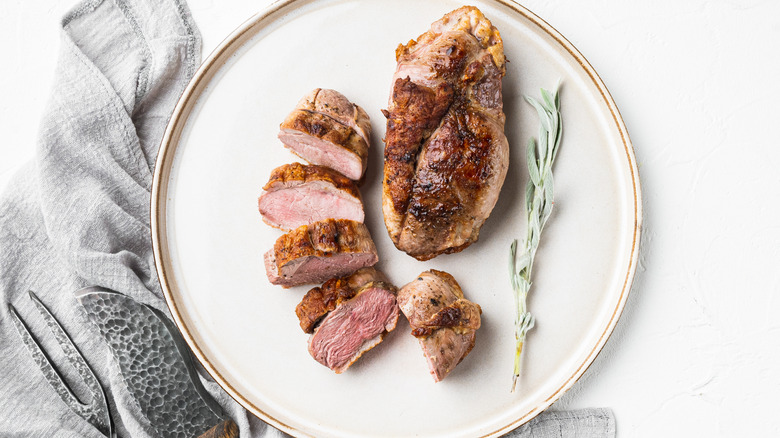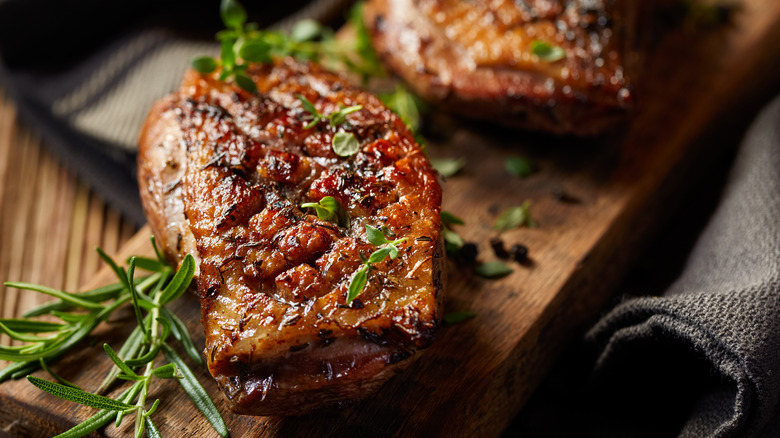Why Is Duck So Greasy?
Duck meat is known to have a tender texture and strong flavor, which has made it a delicacy among game lovers for millennia. Duck is used in a variety of cuisines around the world and is an ingredient in dishes such as fesenjān, confit, ballotine, Bebek Betutu, gumbo, adobo, Peking duck, and more. And there are several essential nutrients in duck meat, including protein, B vitamins, omega fatty acids, and iron, according to WebMD.
Duck meat tends to appear darker than other varieties of poultry like turkey and chicken due to higher amounts of myoglobin protein in the muscles, per Healthline. However, although it exhibits a deeper red shade than other birds, duck is still classified as a white meat. A lot of culinary experts and diners will also tell you that duck meat tends to be greasier or fattier than other menu items. Why is this the case? As you may have guessed, it has to do with the anatomy of this famous waterfowl.
Ducks have a natural layer of fat under the skin
Nature is a beautiful thing, and it often affects the foods we eat. The U.S. Department of Agriculture (USDA) reports that, in order for ducks to effortlessly stay afloat on water, they have a layer of fat underneath their skin. Like other animal fats, these natural esters offer a succulent and sebaceous character, and some added greasiness. Nevertheless, duck is quite different from its feathered cousins, particularly in how it should be prepared. It is commonly suggested that duck skin should be scored with a fork before roasting or searing the bird. During the cooking process, a good amount of the layer of fat will melt in the heat.
According to chef, food writer, and culinary consultant Noelle Carter, removing or cooking the fat is rather simple. "If you've ever enjoyed a seared duck breast, you'll often find the crisp skin is marked with a crosshatch pattern," Carter explained in Los Angeles Times. "Slicing through the skin in this way before cooking allows the fat to drain out as the meat cooks." She also highly recommends saving any excess duck fat for later use, especially as a savory butter replacement. So, although duck meat may taste a bit oily, it's a worthy, decadent indulgence.

